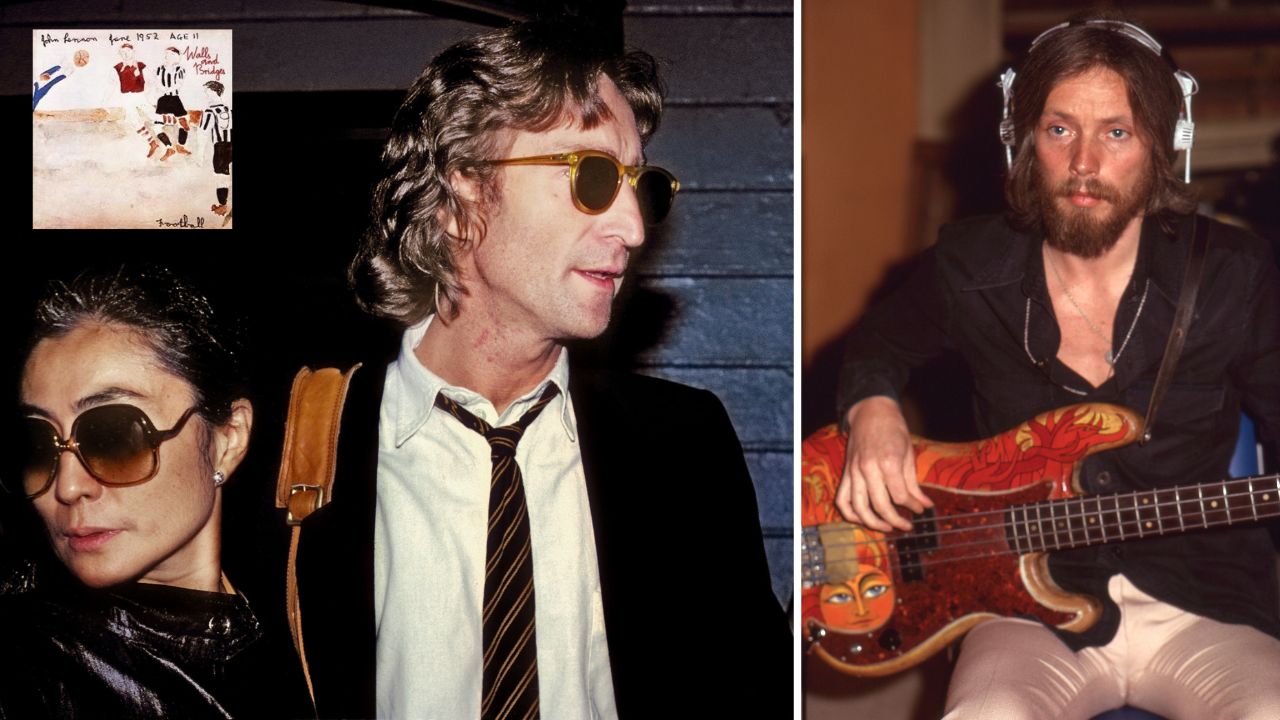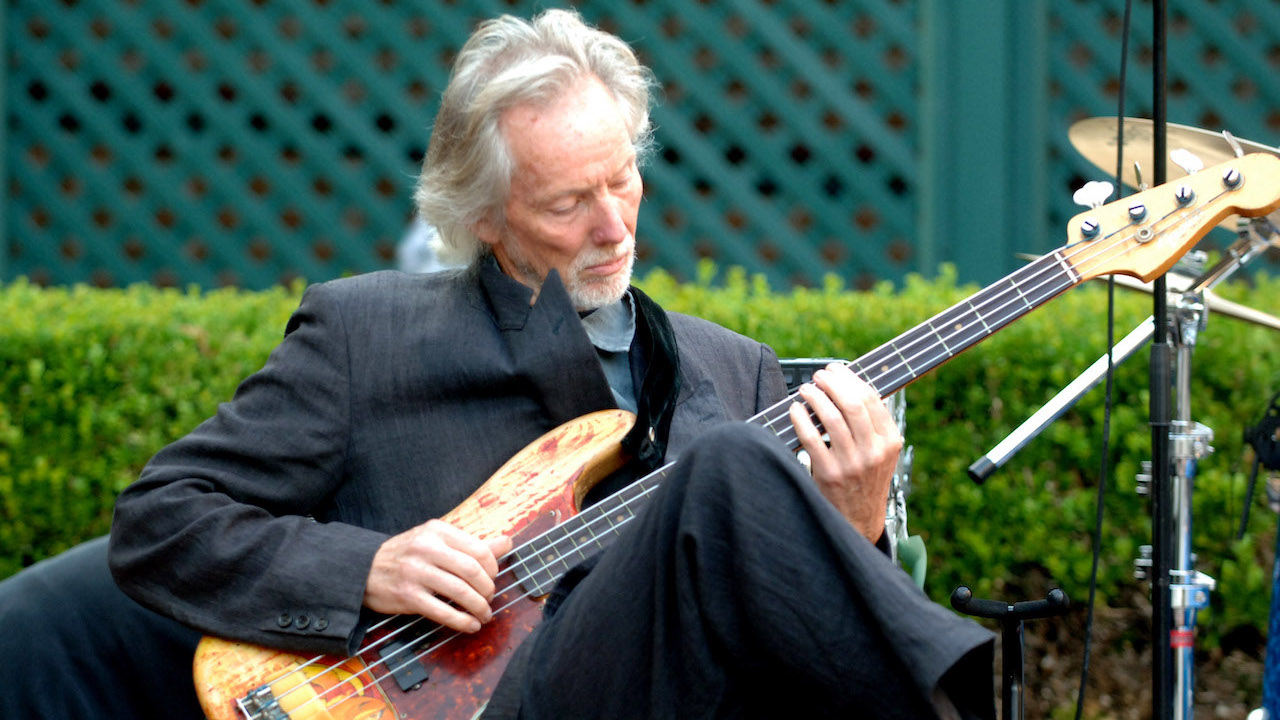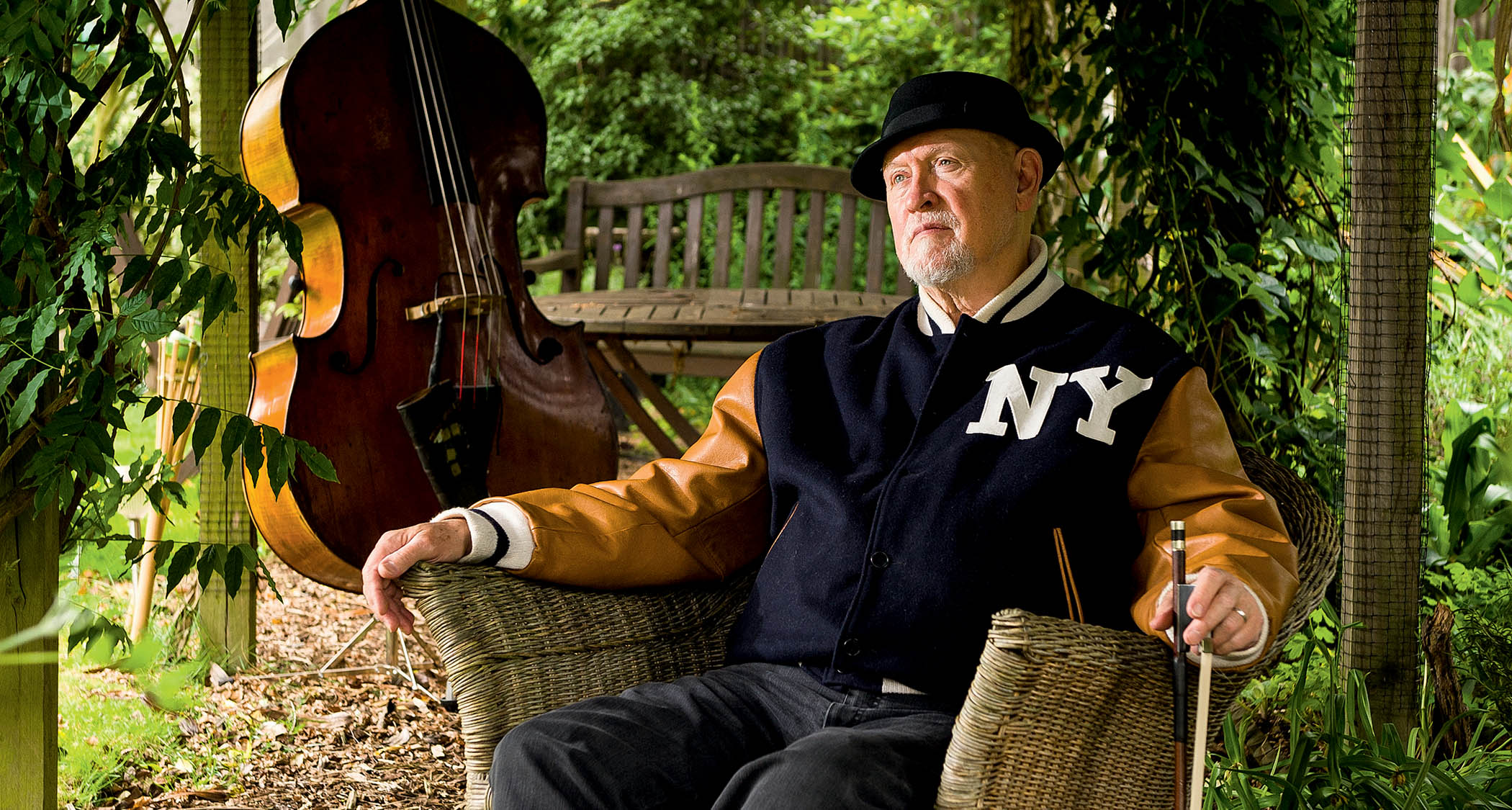“We started at a slow tempo, but as the session wore on, people were heading to the bathroom and sniffing stuff, and the tempo got to be almost twice as fast!” Klaus Voormann’s bassline on John Lennon’s Whatever Gets You Thru The Night is a must-listen
The German musician and artist was John Lennon's bass guitarist of choice for two decades

Even though he launched a legion of low-end disciples with his landmark bass playing, Paul McCartney was not the only bass presence in the Beatles' orbit. Shadowing Macca was soft-spoken, German-born Klaus Voormann, whose supple, tasteful P-Bass lines anchored a decade of discs by rock's royalty – including seminal solo works by the other three Beatles.
Born in Berlin in 1942, Voormann studied classical guitar before picking up a bass guitar in the band Eyes, in 1964. While performing in the trio Paddy, Klaus & Gibson, and shortly before replacing Jack Bruce in Manfred Mann, Voormann met and befriended the Beatles in Hamburg. Their relationship eventually led to the band's request that he apply his graphic art skills for the cover of Revolver.
Calls from John Lennon to play on the Plastic Ono Band's Live Peace in Toronto, and from George Harrison to do The Concert for Bangladesh, meant covering McCartney lines and more – which led to a permanent slot with Lennon and much session work with Ringo Starr. “Ringo is a fantastic drummer,” Voormann told Bass Player. “He has a great, loose feel and subtly brilliant creativity.”
Voorman can also be heard on such John Lennon classics as Imagine and Instant Karma, but the 1974 goodtime ditty Whatever Gets You Thru the Night from Walls and Bridges is what earned Lennon his first No. 1 solo hit.
New York's Record Plant was the setting for the summer '74 session. Present for the live track were Lennon and Elton John on vocals, drummer Jim Keltner, saxophonist Bobby Keys, guitarist Jesse Ed Davis, and percussionist Arthur Jenkins. Lennon also played guitar, and later overdubbed piano.
Voormann plucked his sunburst '64 Fender Precision with La Bella flatwounds, recorded both direct and through a mic’d Ampeg B-15, and he had no chart.
“We started at a slow tempo and it was a happy song, so I thought, I can play a nice hop-along part. But as the session wore on, people were heading to the bathroom and sniffing stuff, and the tempo got to be almost twice as fast! The bass part ended up sounding so busy, even Keltner said to me, ‘Klaus, that's a little much you played there.’
All the latest guitar news, interviews, lessons, reviews, deals and more, direct to your inbox!
“It was a complete take, but I thought we could have done a better one; you can hear us all getting lost in spots, although I made no fixes.”
The track begins with Keys's sax-solo intro and Voormann's galloping bassline. The first chorus contains some key Voorman concepts: the overall syncopation, the drop down from C to open E, and the climbing figure in bar 11.
In addition to these Jamerson-esque moves, Voormann plays a bluesy C against the A chord in bar 13. “I'm not sure what my inspiration was. I tried a few ideas until John looked at me with his usual little grin that meant, 'Nice – carry on!’
Following a second chorus, another sax solo sees some interesting use of chromatic passing tones by Voormann, a device employed in the same sections later on. The quirky form continues in a seemingly whatever-gets-you-through-the-tune way, with a bridge, followed by a sax solo, a chorus, yet another sax solo, a repeat of the bridge, and – what else? – a sax-solo out, at 02:38.

Throughout the tune, Voormann's subtle variations foster the bass part's development. “The essential aspects of the part are the movement from the root either up or down to the 3rd, and the way the melodic lines lead to the next chord or downbeat. It was a real trip laying it down.”
Chris Jisi was Contributing Editor, Senior Contributing Editor, and Editor In Chief on Bass Player 1989-2018. He is the author of Brave New Bass, a compilation of interviews with bass players like Marcus Miller, Flea, Will Lee, Tony Levin, Jeff Berlin, Les Claypool and more, and The Fretless Bass, with insight from over 25 masters including Tony Levin, Marcus Miller, Gary Willis, Richard Bona, Jimmy Haslip, and Percy Jones.
